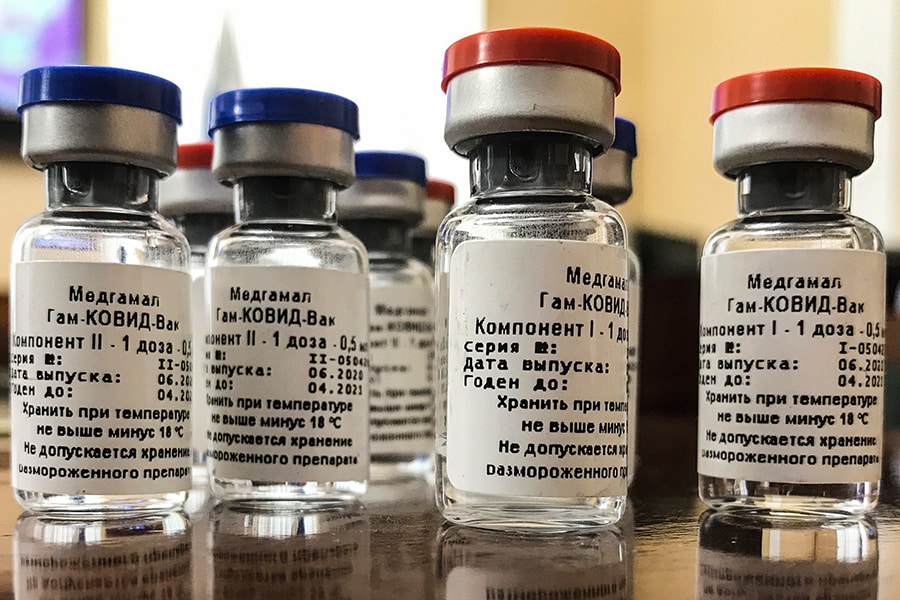
'This is beyond stupid': Experts worry about Russia's rushed vaccine
Vaccines are among the safest medical products in the world—but only because of the intense rigour of the clinical trials that test their safety and effectiveness
 MOSCOW, RUSSIA - AUGUST 12, 2020: Ampoules with a COVID-19 vaccine developed by the Gamalei Scientific Research Institute of Epidemiology and Microbiology of the Russian Healthcare Ministry. Gam-COVID-Vac is a vector two-component adenovirus based vaccine. The vaccine will be available to general public on January 1, 2021. Image: Mikhail Japaridze\TASS via Getty Images
MOSCOW, RUSSIA - AUGUST 12, 2020: Ampoules with a COVID-19 vaccine developed by the Gamalei Scientific Research Institute of Epidemiology and Microbiology of the Russian Healthcare Ministry. Gam-COVID-Vac is a vector two-component adenovirus based vaccine. The vaccine will be available to general public on January 1, 2021. Image: Mikhail Japaridze\TASS via Getty Images
(Matter)
When Vladimir Putin announced Tuesday that Russia had approved a coronavirus vaccine — with no evidence from large-scale clinical trials — vaccine experts were worried.
“I think it’s really scary. It’s really risky,” said Daniel Salmon, the director of the Institute for Vaccine Safety at Johns Hopkins University.
Salmon and other experts said that Russia is taking a dangerous step by jumping ahead of so-called Phase 3 trials, which can determine that the vaccine works better than a placebo and doesn’t cause harm to some people who get it.
Unlike experimental drugs given to the sick, vaccines are intended to be given to masses of healthy people. So they must clear a high bar of safety standards. If hundreds of millions of people get a vaccine, even a rare side effect could crop up in thousands of people.
©2019 New York Times News Service




